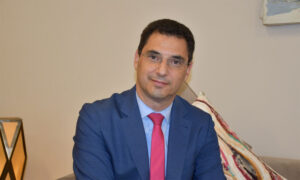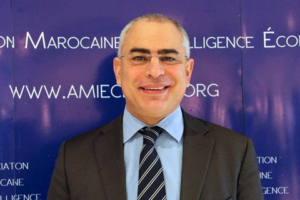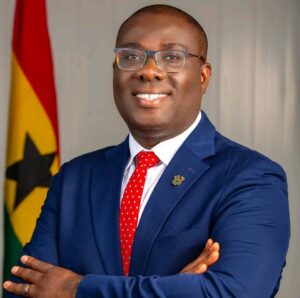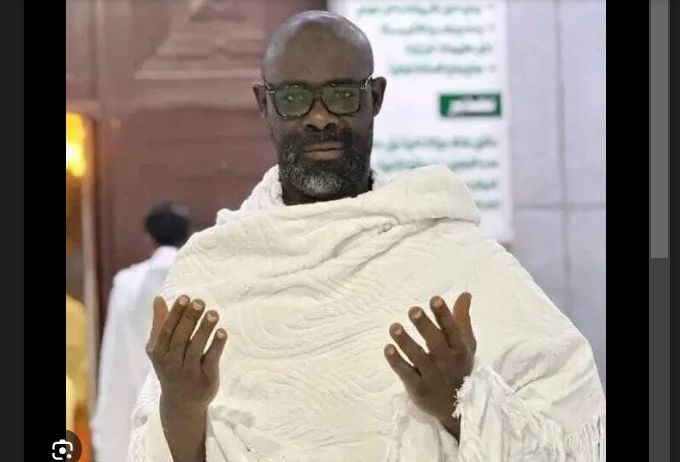The appointment of Mohammed Abdul-Salam as the new Managing Director (MD) of the National Lottery Authority (NLA) has sparked a conversation that many feel is unnecessary in this modern age.
Questions have been raised about his religion, yet little attention is being given to his qualifications and expertise.
This article advocates for a more inclusive, merit-based approach to leadership appointments and questions the logic of reducing an individual’s potential solely to their religious identity.
Across the world, the notion that religion should dictate leadership roles has been increasingly challenged.
In countries like Morocco, a predominantly Muslim nation, it is common to find Muslims at the helm of their national lottery bodies.
It is instructive to note that Omar Skali, a Muslim Moroccan is currently the General Secretary of the Africa Lotteries Association with his predecessor, Younes El Mechrafi, also a Moroccan currently serving on the World Lottery Association.

The same holds for other Islamic countries that have Muslims leading their lottery organizations.
These countries understand that leadership is not about religious affiliation but about the skills, knowledge, and vision one brings to the table.
Such appointments speak volumes about the ability of individuals to lead, irrespective of their religious background.
In many parts of the world, the idea of “religious diversity” is now understood as essential in promoting a more balanced and inclusive society.
The professional sphere has long moved beyond such narrow views. The focus has shifted from who an individual prays to, or which religious community they belong to, to what they can contribute in terms of competence and innovation.
It is essential, therefore, to question why people are focusing on Mohammed Abdul-Salam’s religious background instead of his qualifications, experience, and the potential impact he could make as the MD of the NLA.
As someone who has been appointed to such a significant role, his expertise and abilities should take center stage, rather than the fact that he is a Muslim.
A key point to consider is that religion is hardly a determinant of capability. Mohammed Abdul-Salam was appointed to the position because of his exceptional leadership qualities, knowledge of the sector, and track record of success.
These are the qualities that should be celebrated, not his religion.

Furthermore, it is essential to ask, “Are there no Muslims working at the NLA already?” The answer is clear: yes, Muslims, like people of all other faiths, have been contributing to the success of the NLA for years.
The NLA is a place where individuals from all backgrounds come together to fulfill a national purpose, and their faith has never been a barrier to their service.
What this debate reveals is a misunderstanding of the very nature of public institutions like the NLA. National institutions are meant to be inclusive, serving the people and providing services to all, regardless of their religious affiliations.
What should matter is the ability to perform the task at hand. A Muslim heading the NLA should not be viewed as a deviation from the norm but rather as a natural reflection of the diverse fabric of the society in which we live.
We live in a world where excellence and talent know no religious bounds. Whether it is in the business, education, or government sectors, a person’s expertise and professionalism should be the prime focus.
Leadership is about problem-solving, vision, and effective management. Mohammed Abdul-Salam’s appointment should be evaluated based on these criteria, not by religious bias or prejudice.
Perhaps we should pause and think about the many such noises that characterized Sammy Awuku’s appointment to the same organisation against the transformative leadership and progress he brought to the NLA.
Ghana would have been the loser had Mr Awuku succumbed to the pressure that came from a segment of the public regarding his appointment just because he is a Christian.

In supporting Mohammed Abdul-Salam, Ghana has sent a strong message that the best leaders are those who are qualified, experienced, and dedicated to serving the people, not those who conform to an outdated and narrow view of who is deserving of such roles.
It is time to focus on talent, competence, and experience above all else. Let’s keep the conversation on track and allow the National Lottery Authority to thrive under the leadership of a qualified individual, regardless of their religion.
Ultimately, it’s about recognizing that the future of the NLA and the success of the nation rests not on what we believe in privately but on the skills we bring to the public sphere.
Let’s support leaders like Mohammed Abdul-Salam for what they can do for us, not for who they pray to.
This article is by Joshua Tigo, a non-Muslim, Programmes Manager for Adom 106.3 FM and Editor for Adomonline.com.


